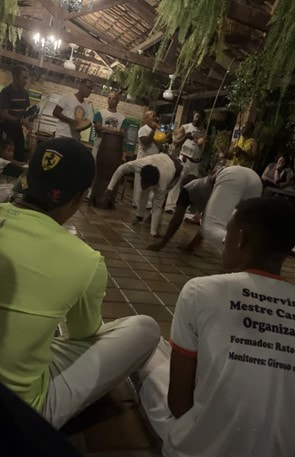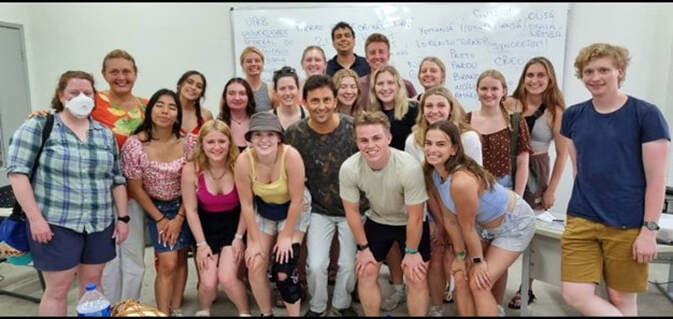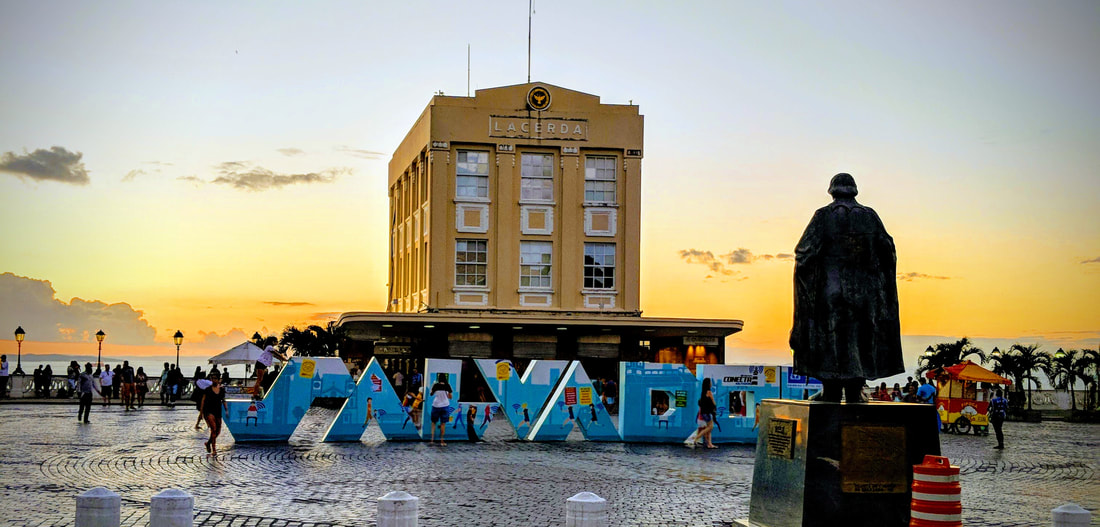 Taken at the Instituto Cultural Steve Biko Taken at the Instituto Cultural Steve Biko By Kathryn McDonough In the United States, many students go to college or university once they graduate high school. When in high school, I had no doubt that I would be accepted to at least one university, if not multiple. The biggest choice my peers and I had to make about college is what one we would choose. Many of us take it for granted that college is so easily accessible to us, which is not the case in many countries. During our time here, we have learned about the education system in Brazil. Over the course of the class, we have discussed race and gender inequality in Brazil. These inequalities can be seen in the education system. In our lecture at Instituto Cultural Steve Biko, we learned about the ENEM exam, which is the college entrance exam (similar to the ACT/SAT), and the importance of the score. For Brazilians, this score is the most important thing for college acceptance. Not only is the score the most important thing, it’s the only thing that universities look at when determining whether or not to accept a student or not. Brazilian universities do not look at GPA, sports, extracurriculars, etc. when determining who gets accepted. These exams are offered once a year and if a student doesn’t do well, they must wait until the next year to take the exam, hence pushing back their college career (“Education and Affirmative Action in Brazil”). Using a score to determine college acceptance may sound fair because it is based on ability and not other factors. However, we see there are many flaws with this system. Although the exam system doesn’t seem to favor any race, we see inequalities come into play which leads to certain people having the advantage. White people have a much higher chance of passing and getting into a good university because they have more resources to help them prepare for the exam and better high schools with more funding that prepare them for this exam. We learned how hard this exam is and that the pass rate is much higher for students attending private schools. If a student wants to go to college, going to a private high school is essential. Parents will pay a lot for their children to go to the top private schools. Since Afro-Brazilian families tend to be among the lower classes due to their long run oppression, it is hard for the families to send their children to private schools. Many of these families cannot afford private education and sending their children could have long run consequences. We see that the education system has racial biases since the system favors those with more resources and money (aka white people).  Our lecture at UFRB in Cachoeira with Prof. Xavier Vatin Our lecture at UFRB in Cachoeira with Prof. Xavier Vatin During our lecture in Cachoeira with Xavier Vatin at UFRB we talked again about race and education. Xavier told us that the university intentionally selects Black students. Although this is controversial in America, this seems to be a really good thing in these circumstances. Universities like this one help bridge the education gap. Xavier told us that there was a substantial amount of first generation Afro-Brazilian students at the university as well as many Afro-Brazilian professors. He said that many of their university students will get their masters degree and come back to teach at the university and help other students. Xavier also talked about the positive impact that former President Lula had on representation in higher education and Black pride. Although increasing Afro-Brazilian representation in higher education is not currently the priority, Xavier was confident in a positive future with future leaders. In our lecture with Alcides I learned that there are after school programs that help provide additional learning opportunities to educate students. These programs helped to increase the number of students passing their college entrance exams. Alcides discussed the projects that he had worked on. These programs are implemented to help increase Black pride. For example, one of the programs he mentioned was a ten day workshop dedicated to promoting black empowerment. They taught Afro-Brazilians, both male and female, how to braid and style curly hair and be proud of it instead of trying to straighten it/ style it according to European standards (Alcides). Programs like this are important and may help improve the confidence of Afro-Brazilian students. In my research on the racial and gender inequalities in politics, I found, “Sustained white men’s dominance in Brazilian political institutions and deterred white and Afro-Brazilian women’s political ambition.” (Wylie, 121). Many Afro-Brazilian women had no motivation to run for office because of the long run oppression they faced. Applying this concept to the education system may be beneficial. Many Afro-Brazilian students have no motivation to even try to pass this exam because it feels so hopeless since the system favors white people. At Instituto Cultural Steve Biko, we saw how their exam prep program was able to help teach students key concepts in the exam to help increase their scores and chances of getting into university. Not only did the students learn exam content, they also learned that they were capable and the program aimed to increase Black pride. We listened to a former student talk about the positive impact this program had on his life. He talked about how amazing college was for him and that he wanted to help other students make it to college and experience what he did. It was really amazing to see how much of an impact this program had on his life. Programs like this may help increase the ambitions of Afro-Brazilian students, which may in turn lead to increased representation in higher education. In conclusion, we see that the education system in Brazil is systemically racist and would benefit from changes or implementation of programs to help Afro-Brazilians. When looking at the Brazilian education system, it is important to recognize our privileges as Americans and understand that we are outsiders. It’s important to understand that we can’t fully understand and that, although it may be helpful to propose solutions and support programs such as the ones mentioned above, the situation is very complex and that we should not make assumptions based on our circumstances. Bibliography Alcides (Pai de Santo). “Condomble in practice” Lecture at ICR Brasil, May 16, 2022. “Education and Affirmative Action in Brazil.” Lecture at Instituto Cultural Steve Biko, May 20, 2022. Vatin, Xavier. “The African Diaspora in Bahia: A Socio-Anthropological Perspective.” Lecture at UFRB, May 19, 2022. Wylie, Kristen. 2020. “Taking Bread Off the Table: Race, Gender, Resources and Political Ambition in Brazil.” European Journal of Politics and Gender 3, no. 1: 121- 142. https://doi.org/ 10.1332/251510819X15719917787141.  I am Kathryn McDonough. I was born and raised in Faribault, Minnesota. I’m a senior math major at CSBSJU. I enjoy applied mathematics and am currently planning on becoming an actuary. When studying abroad in Brazil I hope to immerse myself into the culture and gain a new perspective of the world.
0 Comments
Leave a Reply. |
Archives
June 2024
Categories
All
|

 RSS Feed
RSS Feed
